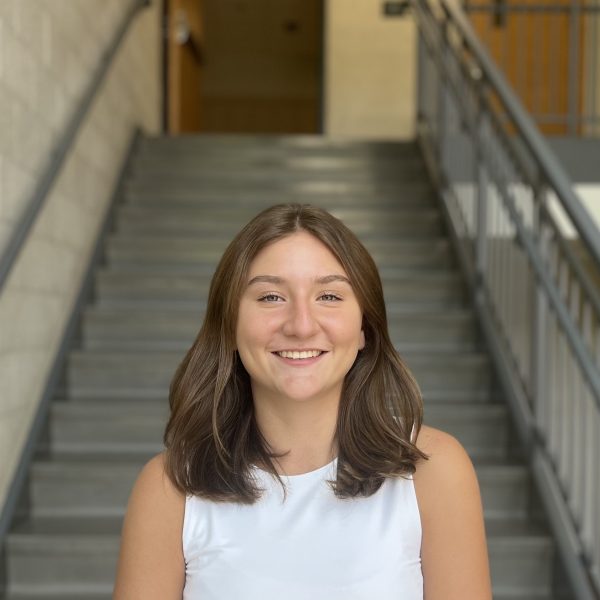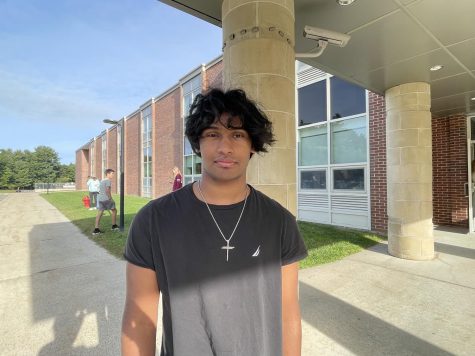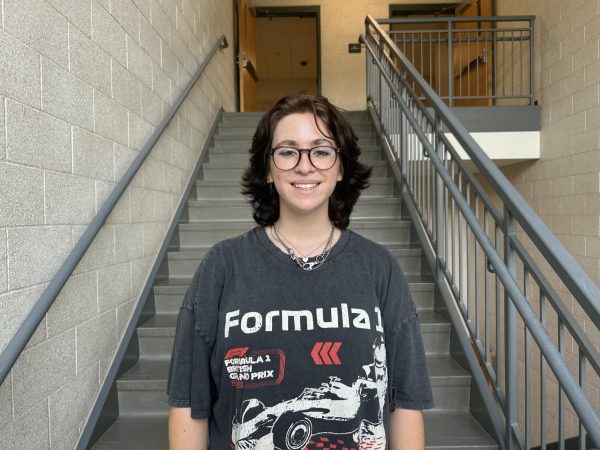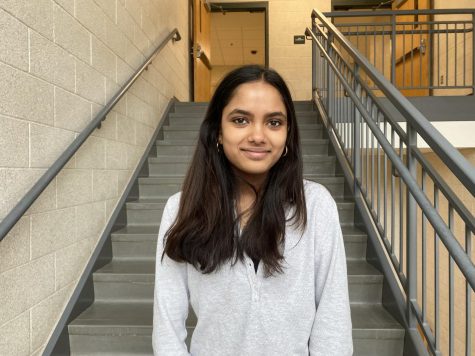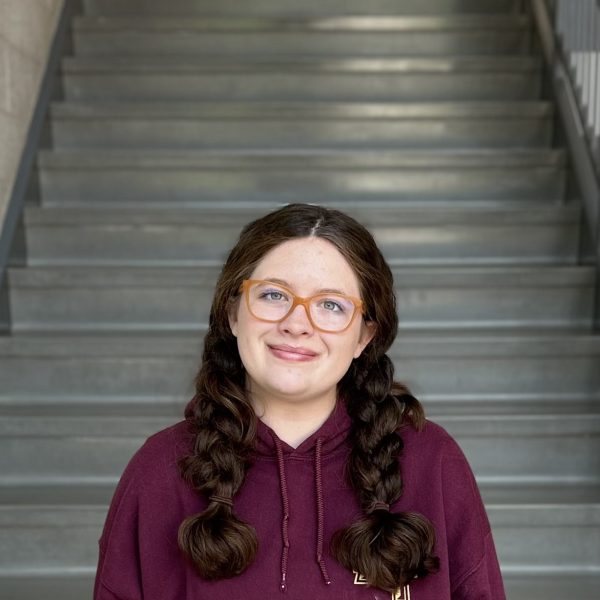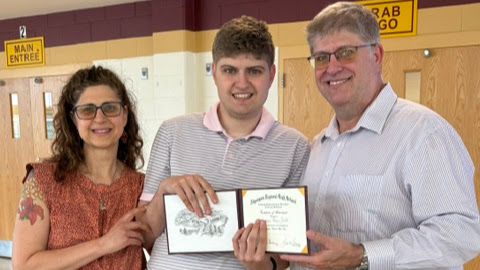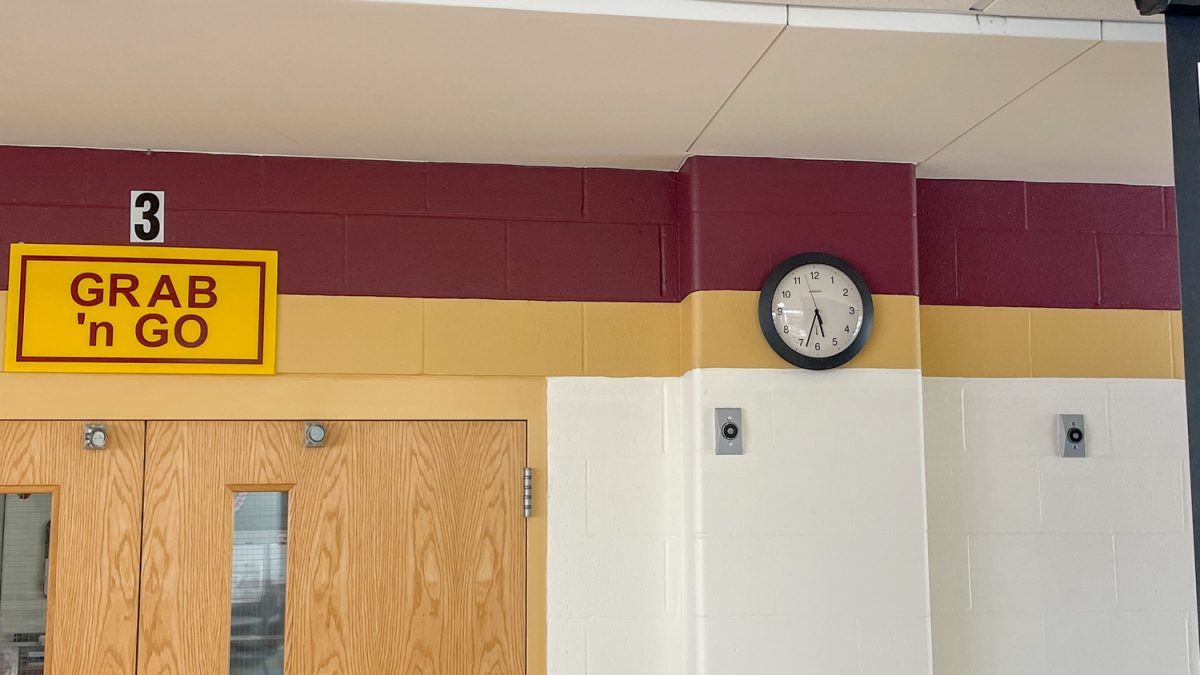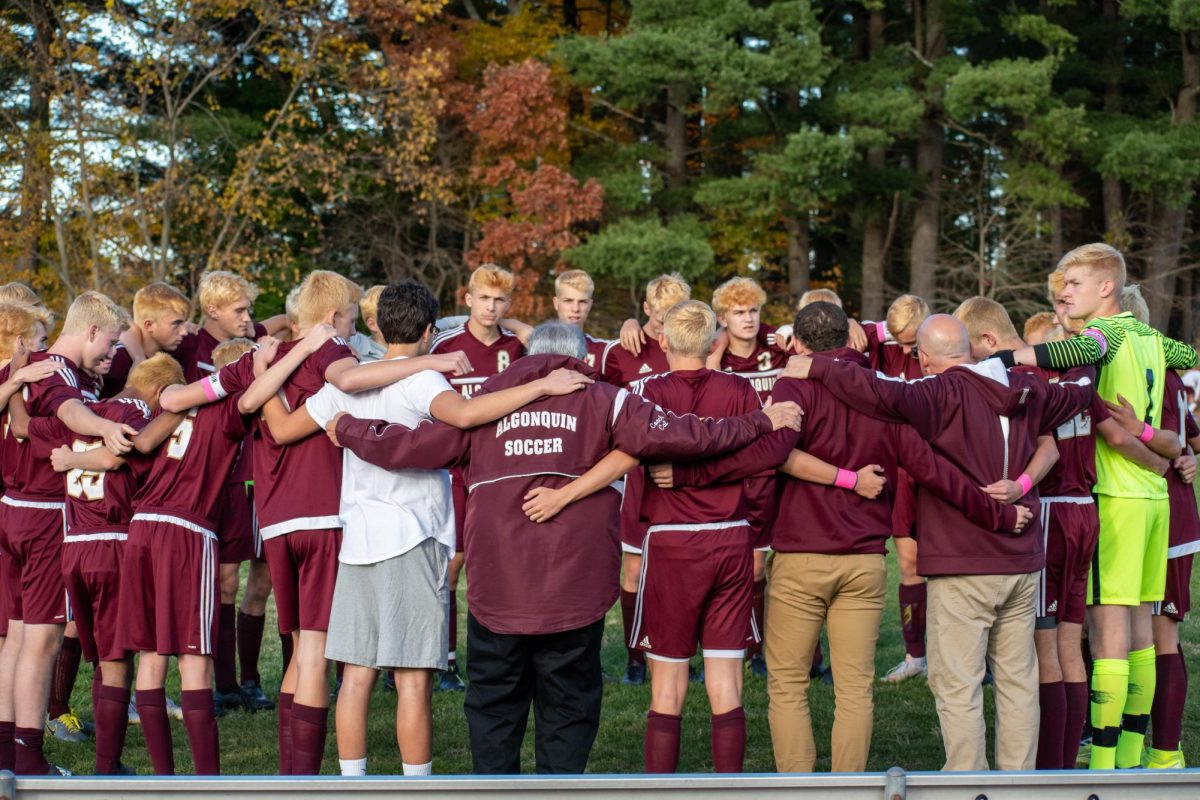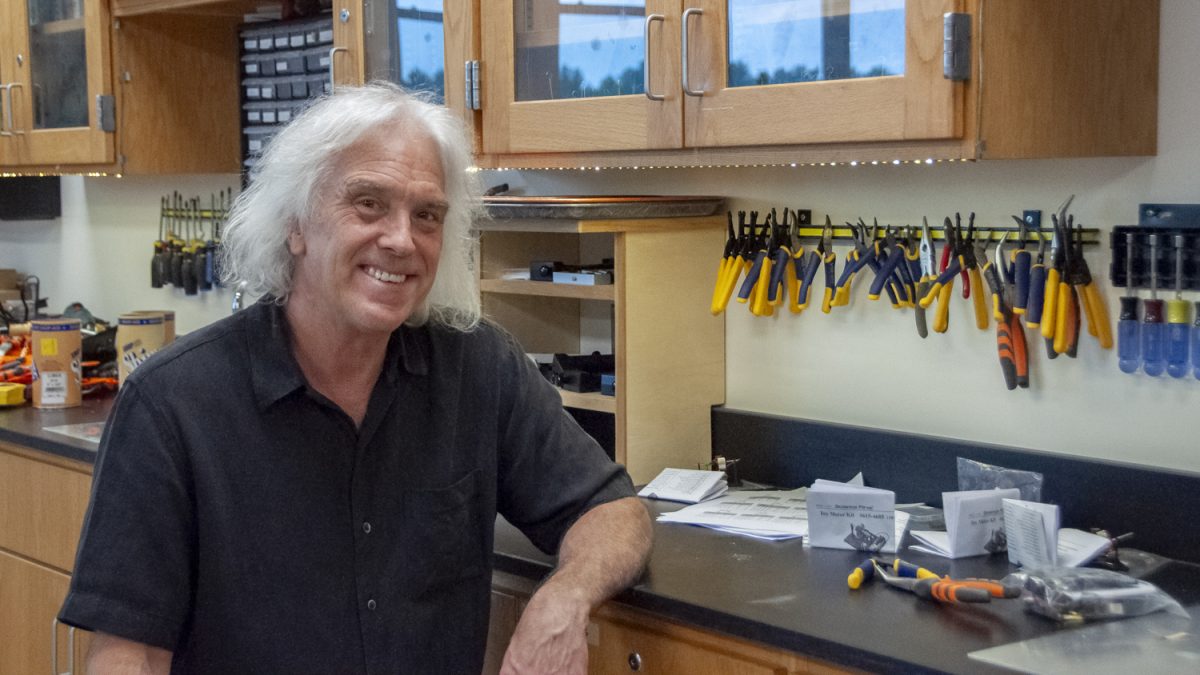New courses offered for 2024-2025 school year
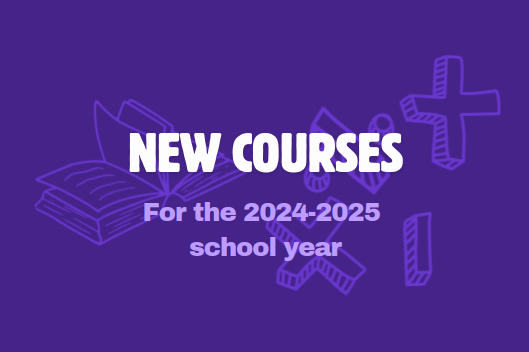
Musical Theater Workshop, taught by Olivia Goliger, will be offered at the CP and Honors level in the 2024-2025 school year, for grades 10-12.
Please describe the new course that you will be teaching, including main objectives, projects, or focuses.
“This is a workshop-style class, so we are going to be learning a little about the history of musical theater, but most of the work that we are going to be doing is performing scenes and songs, maybe doing a little bit of dancing and taking a look at different styles of musicals from different eras. My main goal with this course is just to give students the opportunity to experience more than just the work that we get to do in the fall musical. When we do the fall musical, it’s just one show, and it’s really intense and very in-depth. [This course provides students with the opportunity] to experience lots of different types of things in this genre and live performance. There will hopefully be a showcase at the end of the semester where we will be able to present the work that we have been doing. Every year the course will look different because we will be doing different scenes from different shows. It’s always fresh and new.”
Why do you think this course is beneficial to have offered at Algonquin?
“Just to have another performance opportunity for students, and to explore a facet of music-making and performances that speak to a lot of different types of people. Our performing ensembles tend to be more classical-based or jazz-based. [Students will have] the chance to do all the different things that musical theater is about, the acting, the singing, the dancing, the storytelling. To just have the chance to give students an opportunity to become involved in that is exciting and important.”
Why do you encourage/suggest students to take this course?
“Definitely to deepen their understanding of some of the things that they already know or already enjoy. One of the biggest joys of my career, in all of the aspects of my career, is exposing kids to new things that they find they love. Whether that’s introducing them to a new musical or a new character, or whatever the case is, [this course is] just giving them an opportunity to explore facets of themselves and give them an opportunity to express themselves in new ways.”
What are you most looking forward to about teaching this new course?
“I am excited to work with students in a new capacity. The rehearsal process for choir is very different from how I will approach this class, so getting to work in a little bit more of a spontaneous sort of way and taking things as they come is always really exciting. I am also looking forward to just pairing students up in scenes or working one-on-one with students. It’s obviously going to be a little bit of a smaller class so that we can really dive into things. It’s a new facet of my job that I will get to take a look at.”
Portuguese for Heritage Speakers 2 is a new course for the 2024-2025 school year taught by Pauliny Smith, offered for grades 10-12 at the Honors level only.
Please describe the new course that you will be teaching, including main objectives, projects or focuses.
“The goal of the course is to help native speakers who speak Portuguese. It’s more for native speakers who either speak it at home or grew up with parents who spoke it, and they are really strong at listening and speaking things here and there. It’s more focused on refining that and delving more into the culture behind the language.”
Why do you think this course is beneficial to have offered at Algonquin?
“Last year, right off the bat, I noticed that there was a pretty large population of Portuguese speakers, and that was something that was new to me because I didn’t have that at my high school. I think [the class is] beneficial because it offers a course, but also a place where people can connect and collaborate. I also think that [Portuguese is] an up-and-coming language. A lot more people are speaking it, and the community is growing, especially in surrounding towns and cities. It’s nice to notice [community growth] and have people who speak Portuguese feel recognized.”
Why do you encourage/suggest students to take this course?
“I think that it’s a beautiful language. Being a part of that and growing stronger in languages makes you more accessible to other people; it helps you connect, communicate and interact. It not only connects you with communities around us but communities around the world. It really opens a lot of opportunities. Whether it be Portuguese, Spanish or any language, it really helps you grow as a person.”
What are you most looking forward to about teaching this new course?
“I am a little nervous, just because it is so new and I am still a very new teacher, but I am really excited to dive into something that’s part of who I am and share that with other people, but also learn from the students. I was not born or raised in Brazil; my family is from there. My mom was born there, but I haven’t had the experience of being there for the majority of my life. I will be able to learn a lot from the students as well, and I think that’s going to make it fun and exciting both ways, for myself and the students. It’s not just going to be me trying to instill a bunch of stuff into them, but it will also be a great opportunity for them to share about themselves and get personal with what we are learning. Personal experiences and where people feel comfortable to share, that’s where learning really happens.”
A joint effort from the Science and English departments will culminate in a unique semester-long Environmental Humanities course starting during the 2024-25 school year. The class will be co-taught by Science teacher Chrissy Connolly and English teacher Seth Czarnecki and is available for juniors and seniors at both the Honors and CP levels. Connolly shed light on the inner workings of the course.
Describe the new course you will be teaching, including main objectives, projects or focuses.
“The course is called Environmental Humanities, so it’s the idea of taking English – there’s so much [published] writing about the environment and climate change – and pairing it with science. The reality is, if you’re reading all this environmental stuff, but you don’t have the scientific foundation, you might not understand as well. That is the whole point of [the class] – me being the Environmental Science teacher and Mr. Czarnecki being the English teacher, together we can bring two different perspectives.”
Why do you think this course is beneficial to have offered at Algonquin?
“I think it would be very interesting to see something co-taught with two very different subject matters put together. Depending on how many kids we have, sometimes they might be with me in the science world or with Mr. Czarnecki in the English world. I think it will be interesting to see how it all gels together because it really does fit. Environmental science is interdisciplinary; it’s everything, whether it’s environmental art or environmental writing to get the message across, you’re going to reach more people if you can keep it out of just science. We can reach kids who are unsure about the science aspect but would like to know more about the environment because it’s something we’re all facing.”
Why do you encourage/suggest students take this course?
“We all live here on Earth. We are all part of this huge ecosystem. We really do need to understand how it works and our role in it if we’re going to continue to live here successfully. The more you can know, the more you can explore, the more open you might be to learn. We’re going to continue to hear about climate change, fossil fuels, alternative energies and chemicals in our environment; it’s not going away, unfortunately, but we can get students curious, interested and a little bit more open to thinking. It can be hard to read scientific writing, but this class could be a bridge between the two subjects – how do we take the scientific facts and make them [more accessible]?”
What are you most looking forward to about teaching this course?
“I’m super interested in co-teaching with an English teacher. Mr. Czarnecki is just as passionate about teaching and the environment, and we’re approaching it from very different ways – he’s reading more and learning [the scientific side], whereas I’m getting more into English and reading. You don’t always have to stay on one path. I’m curious to see how we go about teaching. I’m going to assume we teach differently and I’m sure there will be hiccups but we’re going to try things out and see.”
Intro to Statistics is a new course offered for the 2024-2025 school year available for students who have completed Algebra 2 to take at the CP level. While the teacher is currently undecided, Math Department Head Elizabeth Dore sat down with the Harbinger to explain the new course.
Please describe the new course’s main objectives, projects, or focuses.
“This course is meant for students who want to learn the fundamentals of statistics, without it being as complex as AP Statistics. AP Statistics uses a graphing calculator, while in this course you would only need a normal calculator. Also, it helps students going into STEM, since college would like to see some statistical background.”
Why do you think this course is beneficial to have offered at Algonquin?
“Not every student that is interested in statistics would want to take a rigorous course like AP statistics, so this course would include everyone.”
Why do you encourage/suggest students take this course?
“Students need to think about what major they would want to do in college. Fields such as business and psychology all incorporate statistics, so it would be good to learn the basics. Even when reading the newspaper, like the Harbinger, there’s information that could be more understandable with learning statistics.”
Contemporary Applied Math makes a comeback for the 2024-2025 school year, and the course is available to students in grades 10-12 and is offered at the CP level. Math teacher Patrick Galvin is thrilled to start teaching this course again, as Algonquin has been offering Contemporary Applied Math for a couple of years, but shut it down when only around seven students registered for it.
Please describe the new course you will be teaching, including main objectives, projects or focuses.
“It’s called Contemporary Applied Mathematics and its goal is to understand when we are going to use this,” Galvin said. “So some of the topics include statistics 101, an introduction to basic stats—how to collect, display and analyze data. There is a unit on social choice, which is pretty fun on voting methods.”
Why do you think this course is beneficial to have offered at Algonquin?
“A non-traditional math course is important because not all students will want to fall into that STEM category in the next chapter of their life,” Galvin said. “Seeing mathematics affecting decisions that occur every single day is really cool and can be very interesting.”
Why do you encourage/suggest students take this course?
“I feel like too many students think mathematics is just memorizing formulas and regurgitating it, but this [course] gives you an opportunity to see mathematics in a different light and how it affects our daily lives.”
What are you most looking forward to about teaching this course?
“Hopefully seeing more students excited, when I taught this course a couple years ago I think students were generally eager to learn how to invest money,” Galvin said. “Just learning the world around us and not through a traditional textbook.”
Literature of Asia and Latin America taught by Sara Stein will be offered starting in the 2024-2025 school year. This class, formerly known as Non-Western Literature, will be offered at the Honors level, and will focus on exploring the cultural background of different types of literature. Stein provided insight into the course through an email interview.
Please describe the new course you will be teaching, including main objectives, projects or focuses.
“This course has its roots in a course historically called Non-Western Literature. This name is problematic, as it identifies countries primarily in their relation to the West. Other factors also lead to a refreshed description. Junior English is broadening its scope to world literature. I’m really excited about this change because it means many more of our students will have an opportunity to read more literature from outside of North America and Western Europe. Our department is focused on offering literature and content that provides mirrors and windows for our students here at ARHS. With Junior English expanding its scope, it allows for an opportunity for me to focus on two areas of the world that have typically been underrepresented in our curriculum- Asia and Latin America. We will read mythology, poetry and literature, as well as watch films to explore social, religious, cultural, and history as it pertains to the author and the region. There is also an emphasis on the female perspective. Many of the texts we enjoy are written by female authors and are also about women. When we are not reading and enjoying films, we are frequently discussing and processing what we are learning.”
Why do you think this course is beneficial to have offered at Algonquin?
“I think this course reflects the community’s commitment to offering culturally responsive texts and experiences and directly speaks to the ARHS mission to foster the growth of citizens who not only make their community a better place but become true citizens of the world. This course is one small step toward that.”
Why do you encourage/suggest students take this course?
“I think people should take this course for two main reasons: to learn something new and/or to recognize something familiar. For me, learning more about the world is not only exciting, but I think it can make us better people. This course was designed to help us see, as Chimamanda Adichie puts it. there is a ‘danger to a single story.’ By having multiple stories from a place or region, we expand our understanding, our worldview, and perhaps even our empathy… My hope is for students to see beyond stereotypes and appreciate our shared humanity. The second main reason I mentioned pertains to students who may have more intimate knowledge of places in Asia and Latin America. Asian, Asian American, Latinx and Latin American students have also expressed an enthusiasm for reading works from their native or ancestor’s native home. I think it’s important for everyone to have opportunities to read literature about people who reflect an important aspect of their identities.”
What are you most looking forward to about teaching this course?
“My favorite thing is that each year the course is different! Because students bring their own interests and there is room for them to self-select some of their texts, I am always learning too. I love when students get excited because they recognize themselves or their families in the texts and films. I love when students recognize themselves, their attitudes and values, in other cultures, or conversely, when they see difference and appreciate it because they can understand it in light of a greater context. I love when we get to the end of the course and students say they appreciate the experiences they had with me, that they feel it is relevant now and likely in their future.”
A donation of $40 or more includes a subscription to the 2025-26 print issues of The Harbinger. We will mail a copy of our fall, winter, spring and graduation issues to the recipient of your choice. Your donation supports the student journalists of Algonquin Regional High School and allows our extracurricular publication to purchase equipment and cover our annual website hosting costs.
